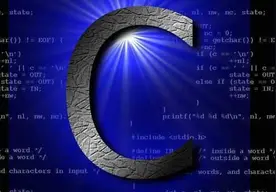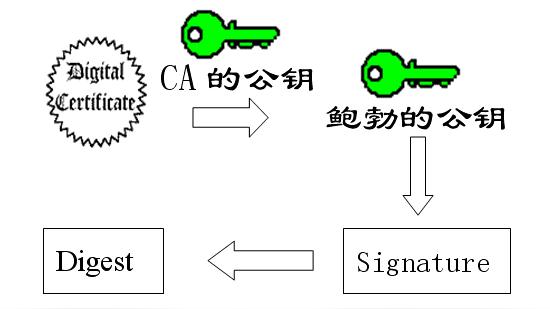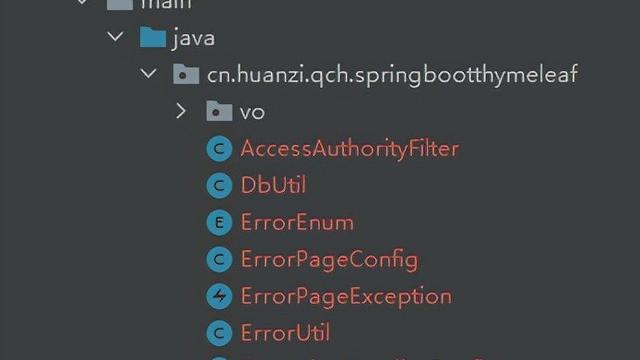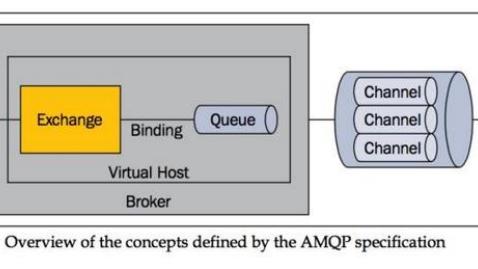仅就从性能部分的错误诊断比较区别,之前见国外有相关文章,我做简单分享,但是,如果要了解区别,无妨从下文中包含的gcc和msvc阅读了解一下。
GCC和Clang一直在彼此较劲尝试证明谁的错误诊断更好。Clang首先在他们的“表现诊断”文章中讨论过GCC :
相关链接:
https://clang.llvm.org/diagnostics.html
彼方唱罢我登场,而后在GCC改进了自己的诊断程序后,又发布了就其性能提升后的文章,标题是“Comparison of Diagnostics between GCC and Clang”,可以看到非常直白和露骨了......
相关链接:
https://gcc.gnu.org/wiki/ClangDiagnosticsComparison
我们可以通过测试Clang 6.0.0、GCC 7.3.0中常见错误,同时通过编译器资源管理器MSVC 2017 19.10.25107来检验谁的性能更好。需要特别说明的是GCC 8似乎已改进了某些消息,但它仍旧不能算是一个稳定的版本。
我个人是把MSVC和Clang中的静态分析器排除在外的,因为将他们中的分析器拿来与GCC这方面的缺失做相应的比较,肯定是不公平的,由此,仅使用-Wall或/ W3,除非没有发现错误,否则我将尝试-Weverything,-Wextra -Wpedantic或/ Wall。
忘记分号,一直都是这样的
semicolon.c
#include <stdio.h>
int main(void) {
printf("Hello, world!n") // no semicolon
return 0 // no semicolon
}
这是在printf语句和return语句之后的惯常会丢失的分号,类似这样一个常见的错误,应该开始意识到这个问题了吧,再如
~ $ gcc-7 -Wall semicolon.c
semicolon.c: In function 'main':
semicolon.c:5:5: error: expected ';' before 'return'
return 0 // no semicolon
^~~~~~
C:> cl /W3 /diagnostics:caret semicolon.c
semicolon.c(5,5): error C2143: syntax error: missing ';' before 'return'
return 0 // no semicolon
^
semicolon.c(6,1): error C2143: syntax error: missing ';' before '}'
}
^
Microsoft (R) C/C++ Optimizing Compiler Version 19.10.25017 for x86
Copyright (C) Microsoft Corporation. All rights reserved.
没错吧,
~ $ clang-6.0 -Wall semicolon.c
semicolon.c:4:30: error: expected ';' after expression
printf("Hello, world!n") // no semicolon
^
;
semicolon.c:5:13: error: expected ';' after return statement
return 0 // no semicolon
^
;
2 errors generated.
Clang显然是赢家,其次是MSVC。而GCC没法识别第二个错误。MSVC和GCC会僵硬的出现把 ';' 放在 'return'"之前的 errors,技术上这来讲,说得通,但不太聪明。
第一轮打分:Clang: 2, GCC: 0, MSVC: 1
在函数末尾丢失花括号是另一个常见错误,尽管不如前一个常见。
missingbrace.c
int main(void) {
return 0;
// no closing brace
希望GCC或MSVC能够把这个问题解决了,
~ $ gcc-7 -Wall missingbrace.c
missingbrace.c: In function 'main':
missingbrace.c:2:5: error: expected declaration or statement at end of input
return 0;
^~~~~~
实在糟糕透顶,
C:> cl /W3 /diagnostics:caret missingbrace.c
missingbrace.c(1): fatal error C1075: the left brace '{' was unmatched at the end of the file
int main(void) {
Internal Compiler Error in Z:optcompiler-explorerwindows19.10.25017libnativebinamd64_x86cl.exe. You will be prompted to send an error report to Microsoft later.
INTERNAL COMPILER ERROR in 'Z:optcompiler-explorerwindows19.10.25017libnativebinamd64_x86cl.exe'
Please choose the Technical Support command on the Visual C++
Help menu, or open the Technical Support help file for more information
Microsoft (R) C/C++ Optimizing Compiler Version 19.10.25017 for x86
Copyright (C) Microsoft Corporation. All rights reserved.
我认为我有可能搞错了, 但是看上去MSVC崩掉了。Microsoft系统可以的,除了崩掉MSVC再没缺点。
~ $ clang-6.0 -Wall missingbrace.c
missingbrace.c:2:14: error: expected '}'
return 0;
^
missingbrace.c:1:16: note: to match this '{'
int main(void) {
^
1 error generated.
仍旧,Clang收入2分.
1-2轮积分情况: Clang: 4,GCC: 0,MSVC: 2
又一个非常常见的错误,
outofbounds.c
#include <stdio.h>
static const int array[4] = { 1, 2, 3, 4 };
int main(void) {
for (int i = 0; i <= 4 /* should be < */; i++) {
printf("%d ", array[i]);
}
return 0;
}
颇为有趣的是, 即使用 -Warray-bounds 或者 /Wall,Clang、MSVC都未曾搞清这点。
但是,在使用-O2时,GCC实际上呈现出的是进行更改的正确选择!
~ $ gcc-7 -Wall -O2 outofbounds.c
outofbounds.c: In function 'main':
outofbounds.c:7:9: warning: iteration 4 invokes undefined behavior [-Waggressive-loop-optimizations]
printf("%d ", array[i]);
^~~~~~~~~~~~~~~~~~~~~~~
outofbounds.c:6:5: note: within this loop
for (int i = 0; i <= 4 /* should be < */; i++) {
^~~
不过,GCC在这里只得到一点,因为它并不总是显示此错误。
1-3轮积分情况: clang:4,GCC:1,MSVC:2
ifs没有花括号,尽管它们显得很方便,但带来的危害往往大于弊端,例如恶名远扬的goto失败漏洞:
相关链接:
https://nakedsecurity.sophos.com/2014/02/24/anatomy-of-a-goto-fail-Apples-ssl-bug-explained-plus-an-unofficial-patch/
if-else-bug.c
#include <stdio.h>
int main(int argc, char**argv) {
if (argc > 1) // needs braces
argc--;
argv++;
else
printf("Usage: %s <arguments>n", *argv); // (this would theoretically be UB because of the argv++)
return 0;
}
自然地作为Apple的编译器,Clang是应该意识到这个错误的,
~ $ clang-6.0 -Wall if-else-bug.c
if-else-bug.c:8:5: error: expected expression
else
^
1 error generated.
……这是一个非常无用的错误,也难怪苹果没有发现。
C:> cl /W3 /diagnostics:caret if-else-bug.c
(7): error C2181: illegal else without matching if
else
^
Microsoft (R) C/C++ Optimizing Compiler Version 19.10.25017 for x86
Copyright (C) Microsoft Corporation. All rights reserved.
MSVC呈现的至少是有意义的,完全不像clang搞出些垃圾来。
~ $ gcc-7 -Wall if-else-bug.c
if-else-bug.c: In function 'main':
if-else-bug.c:5:5: warning: this 'if' clause does not guard... [-Wmisleading-indentation]
if (argc > 1) // needs braces
^~
if-else-bug.c:7:9: note: ...this statement, but the latter is misleadingly indented as if it were guarded by the 'if'
argv++;
^~~~
if-else-bug.c:8:5: error: 'else' without a previous 'if'
else
^~~~
没想到,GCC有次一次鹤立鸡群了下,
1-4轮积分情况: Clang: 4,GCC: 3,MSVC: 2
Java、JavaScript、C ++(一定程度上)和其他几种语言使你可以使用'+'来连接字符串和其他内容。C并没有达到你的期望。
字符串concat.c
#include <stdio.h>
int main(void) {
int value = 4;
const char *string = "value = " + value; // This isn't Java!
printf("%sn", string);
return 0;
}
~ $ gcc-7 -Wall -Wextra -pedantic string-concat.c
~ $ clang-6.0 -Wall string-concat.c
string-concat.c:5:37: warning: adding 'int' to a string does not append to the string [-Wstring-plus-int]
const char *string = "value = " + value; // This isn't Java!
~~~~~~~~~~~^~~~~~~
string-concat.c:5:37: note: use array indexing to silence this warning
const char *string = "value = " + value; // This isn't Java!
^
& [ ]
1 warning generated.
GCC和MSVC 在这件事上完全没搞定,而clang给出了一个有用的报错.
1-5轮积分情况:Clang: 6,GCC: 3, MSVC: 2
有时,你忘记了一个函数需要返回一个值,或者忘记在这个switch语句之后放置一个return语句,或者还有其它种种,
no-return.c
no-return.c
#include <stdlib.h>
int doesNotReturnAValue(void) {
// no return value
}
int mightNotReturnAValue(void) {
if (rand() % 2 == 0) {
return 2;
}
// if rand() is odd, there is no return value
}
~ $ gcc-7 -Wall no-return.c
no-return.c: In function 'doesNotReturnAValue':
no-return.c:5:1: warning: control reaches end of non-void function [-Wreturn-type]
}
^
no-return.c: In function 'mightNotReturnAValue':
no-return.c:12:1: warning: control reaches end of non-void function [-Wreturn-type]
}
^
~ $ clang-6.0 -Wall no-return.c
no-return.c:5:1: warning: control reaches end of non-void function [-Wreturn-type]
}
^
no-return.c:12:1: warning: control may reach end of non-void function [-Wreturn-type]
}
^
2 warnings generated.
啊,0分,完全没价值
C:> cl /W3 /diagnostics:caret no-return.c
no-return.c(5) : warning C4716: 'doesNotReturnAValue': must return a value
no-return.c(12) : warning C4715: 'mightNotReturnAValue': not all control paths return a value
Microsoft (R) C/C++ Optimizing Compiler Version 19.10.25017 for x86
Copyright (C) Microsoft Corporation. All rights reserved.
MSVC做到了。
1-6轮积分情况:Clang: 6,GCC: 3,MSVC: 4
是时候来一些C ++了!
我经常犯的错误包括,忘记添加“使用命名空间”或是在调用之前放置命名空间。
no-namespace.cpp
#include <IOStream>
int main() {
cout << "Hello, world!n"; // should be std::cout
return 0;
}
让我们看看编辑器怎么呈现
C:> cl /W3 /diagnostics:caret no-namespace.cpp
no-namespace.cpp(4): error C2065: 'cout': undeclared identifier
cout << "Hello, world!n"; // should be std::cout
^
Microsoft (R) C/C++ Optimizing Compiler Version 19.10.25017 for x86
Copyright (C) Microsoft Corporation. All rights reserved.
对于微软,这点上,没什么好感,
~ $ g++-7 -Wall no-namespace.cpp
no-namespace.cpp: In function 'int main()':
no-namespace.cpp:4:5: error: 'cout' was not declared in this scope
cout << "Hello, world!n"; // should be std::cout
^~~~
no-namespace.cpp:4:5: note: suggested alternative:
In file included from no-namespace.cpp:1:0:
/usr/include/c++/7.3.0/iostream:61:18: note: 'std::cout'
extern ostream cout; /// Linked to standard output
^~~~
这个看上去好些, 虽然返回的消息有点迷,但是GCC能够搞清楚我们指的是std::cout。再看看clang。
~ $ clang++-6.0 -Wall no-namespace.cpp
no-namespace.cpp:4:5: error: use of undeclared identifier 'cout'; did you mean 'std::cout'?
cout << "Hello, world!n"; // should be std::cout
^~~~
std::cout
/usr/include/c++/v1/iostream:54:33: note: 'std::cout' declared here
extern _LIBCPP_FUNC_VIS ostream cout;
^
1 error generated.
好吧,对于clang来说,虽然和GCC显示了相同的信息,但还是和GCC有所区别的,clang能直接的问到点子上“你是否是指std::cout",而后才会去执行,clang两分,GCC得一分.
1-7轮积分情况: Clang: 8,GCC: 4,MSVC: 4
C ++ dynamic_cast应该在指向类的指针上使用,而不是在类本身上使用,这是蛮奇怪的。
casting-a-class.cpp
class Base {};
class Derived : public Base {};
int main() {
Base base;
Derived derived = dynamic_cast<Derived>(base); // should be used on a pointer
return 0;
}
~ $ clang++-6.0 -Wall casting-a-class.cpp
casting-a-class.cpp:6:23: error: 'Derived' is not a reference or pointer
Derived derived = dynamic_cast<Derived>(base); // should be a pointer
^ ~~~~~~~~~
1 error generated.
天呐,这块clang竟然报错,
~ $ g++-7 -Wall casting-a-class.cpp
casting-a-class.cpp: In function 'int main()':
casting-a-class.cpp:6:49: error: cannot dynamic_cast 'base' (of type 'class Base') to type 'class Derived' (target is not pointer or reference)
Derived derived = dynamic_cast<Derived>(base); // should be a pointer
^
这点上看,GCC更清晰一些,虽然我不知道它指向的是什么。
C:> cl /W3 /diagnostics:caret casting-a-class.cpp
casting-a-class.cpp(6,49): error C2680: 'Derived': invalid target type for dynamic_cast
Derived derived = dynamic_cast<Derived>(base); // should be used on a pointer
^
casting-a-class.cpp(6,49): note: target type must be a pointer or reference to a defined class
Derived derived = dynamic_cast<Derived>(base); // should be used on a pointer
^
Microsoft (R) C/C++ Optimizing Compiler Version 19.10.25017 for x86
Copyright (C) Microsoft Corporation. All rights reserved.
MSVC在上面这里胜出。虽然我感觉它有指向性的错误,但至少把这个问题正确报答出来了。
8轮下来总积分:Clang: 8,GCC: 5,MSVC: 6
特别补充说明,前面完全没有要说其中哪个很差劲,三者无疑各有优缺点, 但是,仅就诊断功能上来说clang被证明更强大些。
文章来源:
https://easyaspi314.github.io/gcc-vs-clang.html









